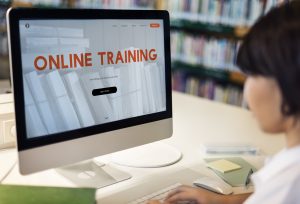Digital remote education is helping more people than ever before expand their knowledge, attain qualifications, and further their careers. Plus, computer-based studying makes it possible to utilize a variety of handy technologies that make learning more effective and personalized. If you’re studying online, check out these three tips for making the most of technology.
1. Connect with Fellow Students via Social Platforms
More than 50% of college students report feeling lonely. The risk of loneliness is particularly high for those studying predominantly online because they miss out on the face-to-face interactions that typically take place in traditional learning environments. Even studying outside of college can lead to a sense of loneliness or disconnect when learning takes place at home via a computer rather than in a classroom.
To improve connectedness with fellow learners, make the most of social media platforms and messaging apps. Your learning provider might give you access to private message boards, forums, or group chats for your cohort, or you may have to create them yourself. The likes of Slack, Discord, and WhatsApp are great for chatting with classmates, whereas social media platforms like Reddit and Facebook can help you connect with fellow learners from all over the world.

2. Seek Out Assistive Technology if You Have Additional Needs
A big benefit of online education is that it’s often more accessible than traditional learning methods for people with disabilities. Plus, there’s a host of assistive technology that can easily be combined with online learning materials. The likes of text-to-speech software, voice recognition and dictation software, mind-mapping apps, graphic organizers, and time management software can be useful for a range of physical and learning disabilities. There are also alternative input devices to choose from such as joysticks, trackballs, and adapted keyboards that make it easier for people with physical disabilities to use their digital devices.
If you have additional needs, look into the availability of funding for learners with disabilities in your area. Governments and charities all over the world have schemes to help students purchase assistive technology and access education. For example, in the UK the Disabled Students’ Allowance provides grants of up to £33,146 per year to help cover the costs of specialist equipment and personal support.

3. Use Your Time Wisely with Digital Productivity Tools
Online education can help you save time by cutting out the commute to the classroom and letting you study to a schedule that suits you. However, the risk of distraction and procrastination can be high without the structure of classroom-based lessons. This is why it’s important to make the most of digital productivity tools.
If you have trouble focusing, use apps to block distracting websites and notifications during set study times. If you have a hard time managing your workload, make the most of digital calendars to block out study sessions and create reminders for important deadlines. If you find yourself losing track of study materials, use digital organizers like Evernote or Microsoft OneNote.
Lean on Technology for Better Learning
Digital tools are becoming more sophisticated by the day and giving us more options for optimizing our studies. By making the most of this technology, you can get the very best out of your online studies.





